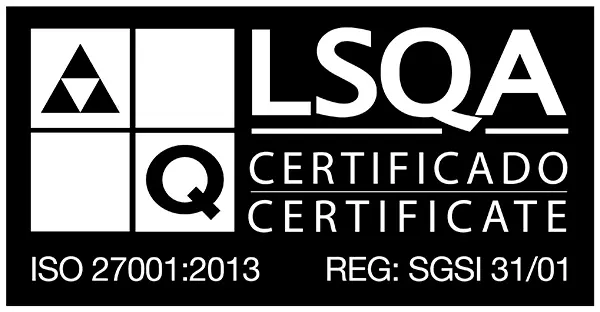The importance of protecting personal data in the digital age
In an increasingly interconnected world, where digital technologies are integrated into every aspect of our lives, the protection of personal data has gone from being a technical issue to a global priority.
Why is it crucial to protect personal data?
Personal data makes it possible to identify a person, such as names, addresses, telephone numbers, purchase histories, bank details or even fingerprints. In the era of mass digitalization, this information has become one of the most valuable assets for both companies and cybercriminals.
Protecting this data is not only essential to ensure the privacy of individuals, but also to preserve trust in the organizations that manage it. Failure to provide adequate protection can result in reputational damage, legal sanctions, and significant financial losses.
Main risks in data protection
🔹 Cyber attacks: Threats such as Phishing, Ransomware or malware they put personal information at risk.
🔹 Misuse of data: Many organizations collect data without clear consent, using it for unintended purposes.
🔹 Lack of strict regulations: In some regions, the absence of adequate laws makes it difficult to protect information.
🔹 Human errors: Accidental data exposure by employees is a common cause of information leaks.
Legal frameworks in data protection
In recent years, governments have implemented stricter regulations to protect personal data. Some of the most important regulations are:
General Data Protection Regulation (GDPR): It sets strict standards in the European Union for the collection and use of personal data.
🔹 California Consumer Privacy Act (CCPA): Applied in the US, it gives consumers greater control over their data.
🔹 General Data Protection Act (LGPD): Brazilian regulation focused on the privacy rights of citizens.
🔹 Regulations in Latin America: Countries such as Argentina, Mexico, Peru and Colombia have local regulations.
🌎 Examples in the region:
📌 Uruguay — Law No. 18,331 on the Protection of Personal Data and Habeas Data, aligned with international standards and considered adequate by the European Union.
📌 Chile — Law 19,628 on the Protection of Private Life, with ongoing reforms to strengthen regulation.
Best Practices for Protecting Data
🔒 Information encryption: It protects sensitive data during transmission and storage.
👨 💻 Restricted access policies: Only authorized employees should have access to sensitive data.
📚 Ongoing training: Teach employees to identify and prevent cybersecurity risks.
🔍 Regular audits: Regularly evaluate security systems for vulnerabilities.
✔️ Informed Consent: Ensure that users understand how their data is collected and used.
Infocorp's commitment to data protection
We understand that trust is the pillar of our relationships with customers and users. For this reason, we integrate the security best practices in each of our technological solutions. Not only do we comply with international regulations, but We lead by example in the ethical and safe use of personal data.
It is because of that commitment, that we are certified in ISO 27001 LSQA.
Information Security Policy
At Infocorp, we are aware of the value of information and the importance of protecting your confidentiality, integrity and availability.
To this end, we have designed and established a Information Security Management System, which guarantees:
✅ Annual Objectives and an Action Plan, always striving for continuous improvement.
✅ Risk analysis and application of efficient controls for each situation.
✅ Compliance with requirements of the business, legal and contractual.
✅ Awareness-raising and training permanent in security and new technologies.
✅ Allocation of adequate resources to consolidate our culture of responsibility.
✅ Ongoing commitment to reinforce security in our processes and services.




